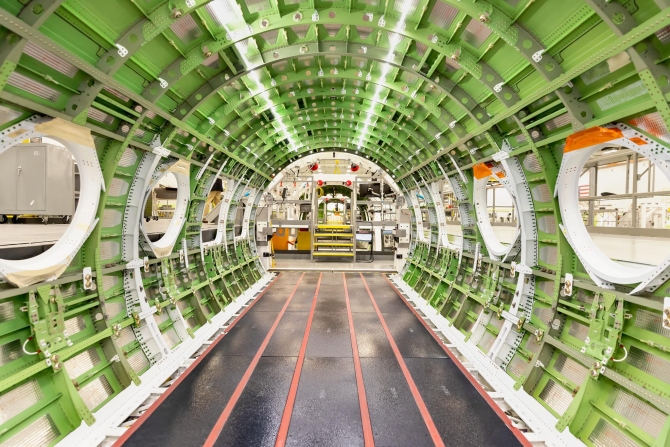Gulfstream Continues Most Production Through Pandemic
Click on image to download high resolution version
Source: Aviation Week
At Gulfstream Aerospace, most manufacturing, service and flight test facilities at its headquarters in Savannah, Georgia, have remained operational through the COVID-19 outbreak, as the business is considered critical by the Department of Homeland Security’s Cyber & Industrial Security Agency.
All employees who can do so are working remotely, the company said. Gulfstream has been impacted by the spread of the coronavirus, however. Two of its Savannah-based manufacturing facilities have temporarily closed after the company confirmed that employees working in the facilities tested positive for the coronavirus. The facilities will be thoroughly cleaned to mitigate any spread of the virus before they reopen later this month, Gulfstream said.
“In an abundance of caution, we sent all the employees who worked in the two facilities home and asked them to self-quarantine and self-monitor,” the company said.
In addition, an employee at its Westfield, Massachusetts, facility was diagnosed with the virus. Gulfstream closed several areas where the employee spent time and told employees in those areas to remain home to self-quarantine. An employee at the company’s St. Louis facility and an employee at its Dallas Love Field facility have also tested positive. In response, Gulfstream closed the St. Louis hangar where the employee worked and told employees to remain home.
Since the news of the coronavirus emerged, Gulfstream has increased cleaning of its facilities, reduced company travel, implemented screenings, established on-site temperature screenings, provided employees with personal protective equipment, limited visitors and disinfected incoming aircraft. The company also has encouraged employees to intensify personal hygiene, practice social distancing at work and stay home if they have symptoms or feel unwell.
Gulfstream is also donating 3,500 N95 masks and more than 3,100 protection suits to U.S. hospitals and public health organizations. It also has provided more than $60,000 to Savannah-based organizations to help those in need. And it is supporting Gulfstream communities in other states.
Together with two General Dynamics sister companies, it is using 3D printers to produce adapters for a Canadian clinic trial examining whether CPAP and BiPAP machines can be converted to usable ventilators. It also is using its 3D labs to print manufacture tension-release bands for surgical masks and working to pursue Food & Drug Administration registration and approval of 3D-printed nasal test swabs.


